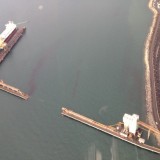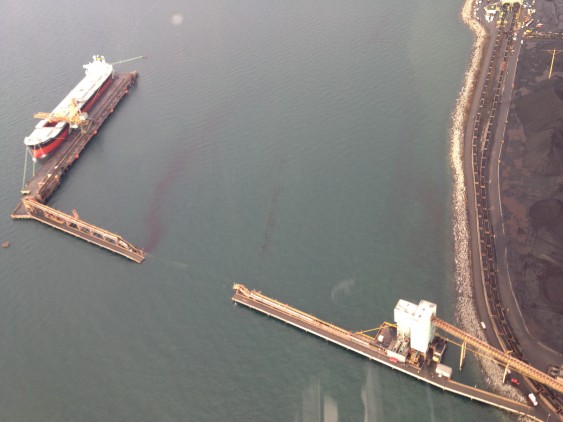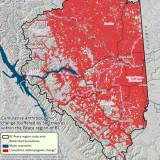Read this column from the Province’s Mike Smyth on the increasingly rocky ride Kinder Morgan is facing with its proposed mega-expansion to the Trans Mountain Pipeline and oil tanker traffic through Vancouver. (Dec. 9, 2012)
There was a time when pipeline projects were so common and boring they wouldn’t need a public-relations campaign or saturation advertising to sell them.
But that was before climate change, the Alberta oilsands, the Deepwater Horizon disaster and the pipeline rupture that made a mess of the Kalamazoo River. It was before heightened public concern over oil tankers off the B.C. coast, and long before a company called Enbridge proposed the Northern Gateway pipeline, and unleashed B.C.’s biggest environmental battle in a generation.
The Enbridge project has become a political flashpoint in the province, with the NDP’s Adrian Dix firmly opposed to it, and Premier Christy Clark’s Liberals laying down strict conditions for supporting it. But while the politicians and pundits duke it out over Enbridge — and the company soaks the airwaves with pro-pipeline ads — another company called Kinder Morgan is quietly going about its business. It’s B.C.’s “other pipeline”: the $4-billion proposal to twin the existing TransMountain connection from Alberta to Burnaby.
Like Enbridge, the company wants to pump heavy diluted bitumen from the oilsands to the B.C. coast, where it would be loaded onto tankers for shipment to Asia. Oil-tanker traffic would swell from the current five to 25 ships per month. But unlike Enbridge, there’s been no massive ad campaign, though one might come later. For now, Kinder Morgan has opted for a series of lower-profile town hall meetings along the pipeline route.
“We’ve taken a very local approach,” says Ian Anderson, president of Kinder Morgan Canada. “The team working on the project is based in Vancouver, and the people meeting one-to-one in the communities are British Columbians.”
The town hall events feature fresh-faced young people staffing the information displays. A couple of friendly and casually dressed company officials — Michael Davies and Greg Toth — lead the sessions.
Not a Calgary power suit in sight.
The low-key approach seems to be working for the company, which has taken much less flak than Enbridge in the province’s pipeline wars.
But that could change. Protesters have appeared at most of Kinder Morgan’s events — “we know them by name now,” Davies jokes — though the biggest excitement before last week was a streaker flashing by in Nanaimo.
Then the tour hit Victoria, and a busload of protesters drove up and swarmed the meeting. (Yes, that would be a bus powered by fossil fuel.) The protesters took down the company’s information displays and sat on them, preventing the public from seeing them. A few of the company’s placards were torn and vandalized with markers…
…While Adrian Dix has soundly condemned the proposed Enbridge pipeline, the NDP leader has remained officially neutral on Kinder Morgan, saying the company has not officially applied for a pipeline permit yet. It’s a technical loophole Dix has seized to avoid taking a position on an increasingly controversial issue that could end up dividing his own party.






